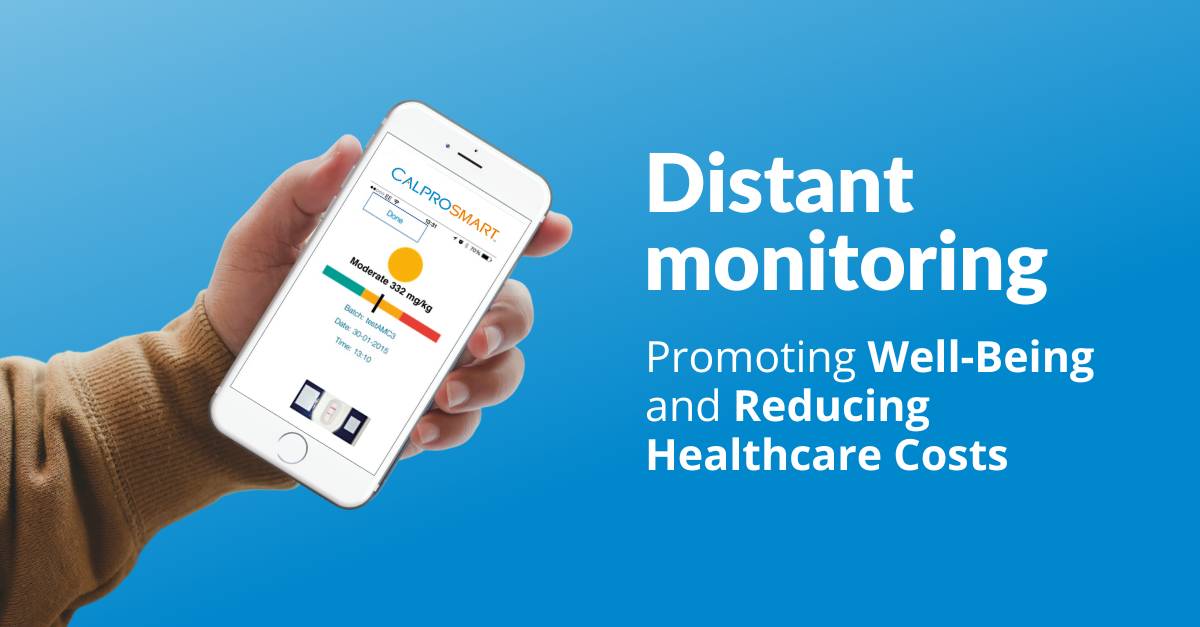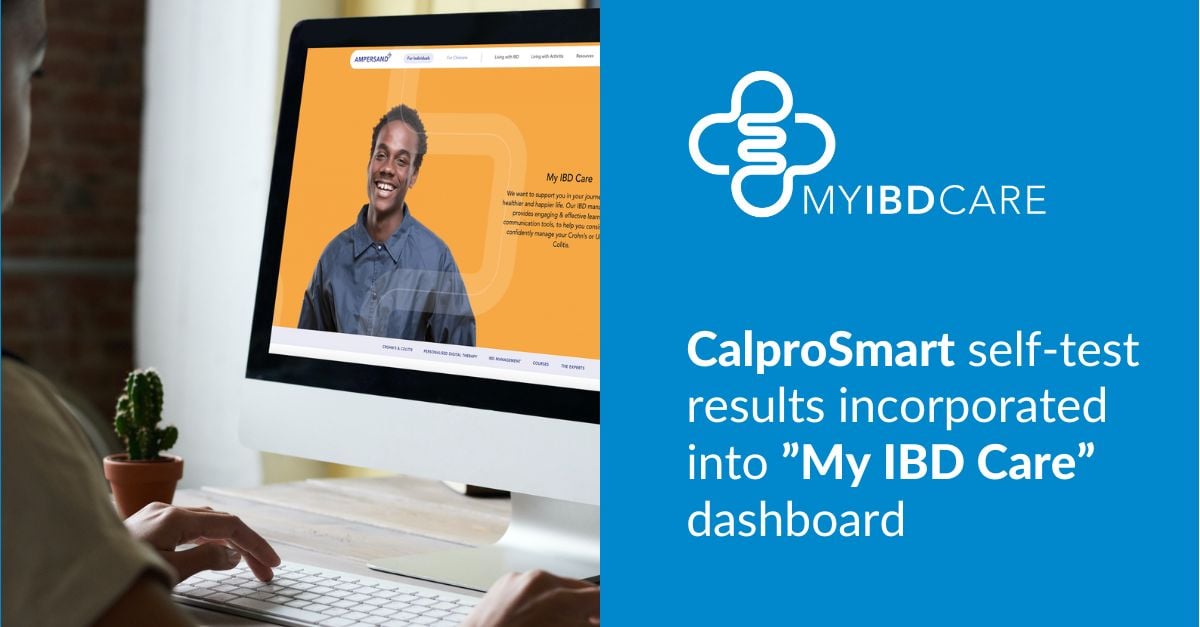- Other Products
- CCP
Inflammatory Bowel Disease (IBD), including Crohn's Disease and Ulcerative Colitis, affects millions of people worldwide. Managing IBD can be challenging, as it requires continuous monitoring and adjustments to treatment plans. However, advances in healthcare technology have paved the way for a more efficient and patient-centric approach to managing IBD: distant monitoring. In this blog post, we will explore how distant monitoring of IBD can promote well-being and significantly reduce healthcare costs.
WHAT IS INFLAMMATORY BOWEL DISEASE (IBD)?
IBD is a chronic inflammation in the gastrointestinal tract. Symptoms can be severe, including abdominal pain, diarrhea, weight loss, and fatigue. Managing IBD typically involves a combination of medications, lifestyle changes, and in some cases, surgery.


Inflammatory Bowel Disease (IBD), including Crohn's Disease and Ulcerative Colitis, affects millions of people worldwide. Managing IBD can be challenging, as it requires continuous monitoring and adjustments to treatment plans. However, advances in healthcare technology have paved the way for a more efficient and patient-centric approach to managing IBD: distant monitoring. In this blog post, we will explore how distant monitoring of IBD can promote well-being and significantly reduce healthcare costs.
WHAT IS INFLAMMATORY BOWEL DISEASE (IBD)?
IBD is a chronic inflammation in the gastrointestinal tract. Symptoms can be severe, including abdominal pain, diarrhea, weight loss, and fatigue. Managing IBD typically involves a combination of medications, lifestyle changes, and in some cases, surgery.
In the conventional approach, individuals with IBD typically rely on periodic in-person consultations with gastroenterologists, with additional visits during suspected or actual flares. While these appointments are essential for ongoing monitoring, they can pose challenges for patients, including:
Distant monitoring, also known as remote monitoring or telemedicine, leverages technology to make the monitoring more effective and often involves self-tests, questionnaires, and phone or video consultations as standalone or in any given combination. Recent developments specific to IBD include biomarker self-tests performed at home by the patient and so-called PRO-apps (Patient Reported Outcome apps). The benefits of these advancements are:
Distant monitoring of IBD patients benefits both the patient and the healthcare system. Early detection with the help of distant monitoring can detect symptoms of a relapse sooner than standard care, resulting in a reduced time to remission1,2, and a reduced burden on the patient.
As counterintuitive as it might sound – keeping the patient out of the hospital and on remote monitoring may give the healthcare team more information about the patient's disease and even increase patient engagement and adherence to treatment.
Healthcare and fitness apps are rather common nowadays, and managing IBD through a similar solution makes it already “natural” to many. Consequently, the patient's general well-being and quality of life can be increased1,2.
Many patients feel they are closer to their care team with remote monitoring. For hospitals, many studies have shown that by placing patients on remote monitoring, it can reduce outpatient visits and hospital admissions, and improve adherence to therapy3. This way the physicians can prioritize patients that need to be examined in person, thus positively reducing the waitlist.
In addition, proactive monitoring or eHealth, which remote monitoring is in reality, can often capture flares in the sub-clinical stage, reducing the number of emergency visits and even admissions, as some studies have highlighted, further reducing hospital costs1,4.

CalproSmart provides a self-test, making it possible to do the test routines at home. Through smart integration, the data can be shared with applications such as "My IBD Care" by Ampersand Health; such integrations enable the clinician to give the patient the right support when they need it the most.
Ampersand Health specializes in immune-mediated inflammatory diseases (IMIDs), and has successfully transformed IBD management with the distant monitoring app My IBD Care, benefiting over 50,000 users and NHS Trusts in the UK.
Distant monitoring of IBD is revolutionizing the way we manage this chronic condition. By leveraging technology and patient engagement, it not only promotes well-being but also reduces the economic burden on healthcare systems. As we embrace telemedicine and digital health solutions, we can look forward to a future where IBD patients enjoy a higher quality of life while minimizing the disruptions and costs associated with their care.
1. Ankersen DV et al., E-Health and remote management of patients with inflammatory bowel disease: lessons from Denmark in a time of need. Intern Med J. 2021.
2. Burisch J et al., Telemonitoring and self-care in patients with IBD. In: RK Cross and AR Watson, eds. Telemanagement of Inflammatory Bowel Disease. Springer US; 2015.
3. De Jong MJ, et al., Telemedicine for management of inflammatory bowel disease (myIBDcoach): a pragmatic, multicentre, randomised controlled trial. Lancet. 2017.
4. De Jong MJ, et al., Costeffectiveness of telemedicine-directed specialized vs standard care for patients with inflammatory bowel diseases in a randomized trial. Clin Gastroenterol Hepatol. 2020.